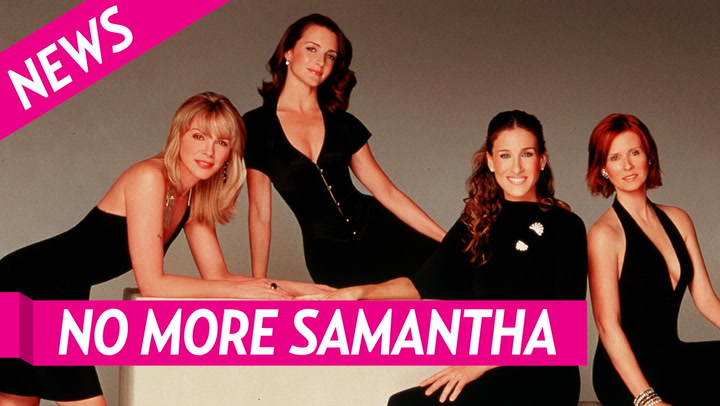David Belisle
By Laura Studarus
Beach House members Victoria Legrand and Alex Scally acknowledge that, like everyone else, they have been impacted by the string of devastating global events over the past two years — and that the extended pandemic shutdown gave them time to explore the musical nuances of what would become their eighth studio album, Once Twice Melody. But more than music about disaster, what they crafted was a tribute to where their imaginations took them while everyone else was getting sick of the phrase “unprecedented times.” That meant making peace with the fact COVID-19 would forever be part of their story.
“You can’t not mention it,” Legrand tells MTV News. “We’ve all been affected — and the restrictions caused us to shift in little various ways.”
There’s no arguing the dream-pop duo have an innate sense of their wheelhouse. But despite a steady clip of releases, beginning with their spartan self-titled album in 2006, they’ve also allowed themselves a fair amount of reinvention (something that Scally emphasizes should be normalized in any creative field). After the equally hushed follow-up Devotion, the two signed to Sub Pop and produced Teen Dream, an album that was meant to fill bigger spaces, they joked in interviews, and dispel any rumors they were just hippies in floaty dresses. When the venues got a little too big for their comfort while supporting Vampire Weekend in 2010, they scaled back, playing smaller rooms and more dates as they released the equally bombastic Bloom and stripped-down twins Depression Cherry and Thank Your Lucky Stars.
But even the My Bloody Valentine-reminiscent wall of sound that became their seventh album 7 never shook the core foundations of the band: two people, in a room, staring at each other and embracing the push and pull as they create something new. It’s that outlook that Legrand believes allowed them to keep creating, even as the world was rapidly changing around them.
“It was in 2018 when we started feeling the beginnings of the next thing, whatever that was going to be,” Legrand says. “And so, when the pandemic started, and everything began shutting down, we were already in our studio, this place that we’ve created in Baltimore. The door was already locked… And here we are three years later. Two of those three years were in this pandemic and living as people in the pandemic and as artists throughout it. But we feel bizarrely lucky and grateful that we had art to make, because I know a lot of people didn’t, and I think a lot of people were paralyzed creatively.”
While Legrand has found joy in watching birds, and Scally has been busy challenging himself by learning Bach pieces, despite admitting he’s not a great pianist (“mathematical and peaceful and memorization feels good,” he notes), ultimately, creating music is simply embedded into who they are as people. It’s a practice they weren’t willing to give up during a time of global turmoil.
”Almost half of our lives now have been in this band,” Legrand says. “And so, it’s the making of music, the processes of it, the touring, the exchanges, the thoughtfulness, the creating the artwork, the animations, the video. All of it combined. I can’t separate it from life. I just think that creating, period, is it for us.”
Released in four chapters, the final of which drops today (February 18), Once Twice Melody is perhaps Beach House’s most expansive album to date. Legrand’s sinuous alto and Scally’s guitar work is reimagined through a series of lenses. On “Sunset,” a rare acoustic guitar sees the pair embrace a sense of stillness and finality, with Legrand asking to “lay me where the flowers grow.” Meanwhile, vocoder-heavy “Runaway” explores the flip side of the coin, a desire to flee at any cost. And in a first for the band, legendary composer David Campbell (Beck, Adele, Billie Eilish) was recruited to arrange live strings, lending many of the album’s 18 tracks a haunted, film-noir ambience. Scally and Legrand were producing each nuance themselves, alone in the studio day after day.
“In terms of creative spirit, I think everyone just does what’s natural to them,” Scally says. “I think I need to do the daily [work] because maybe I don’t have the voice of God come through me as much — so I have to make sure I’m there when it happens, whereas certain people are like electric lightning rods.”
When Legrand mentions the flow of ideas through the creative process, it’s with a sense of reverence and curiosity. The way she sees it, the muses don’t always deliver everything they need — and it’s the band’s job from release to release to chase those ideas that don’t always make it into existence.
“That’s the insatiable appetite of the lofty artist,” she says with a laugh, making it clear that it’s the process, not herself, that she takes seriously. “There’s this kind of pleasant disappointment. But I think that we already wanted to go to some exciting places.”
Yet having the luxury of a prismatic smear of uninterrupted studio time brings up an interesting dilemma: How do you know when you’re done?
“I was just trying to think back on all the moments, which is hard to even parse out,” Scally says. “But I wouldn’t say there’s a defined moment, but it was kind of a long burn, so long. It’s a long road.”
At that, Legrand gently contradicts her bandmate. Yes, writing a single song — let alone an entire album — is an extraordinary accomplishment. But for her, pushing through meant celebrating each micro-milestone along the way.
“This journey was the longest of all the ones we’ve made,” she says. “It had the most twists and turns, and there were times where it felt endless. But then, we’ve just learned to hear that voice that says it’s over. There has to be that moment in order for you not to completely, fully lose your mind. You have to create a closure for yourselves.”
“I’m glad that it’s supposedly over in the sense that the record is coming out. We’re no longer making it. But it’s bittersweet. It’s a sadness, because it’s leaving.”
We’ve all taken time off being perceived. Life is slowly grinding back to normal, which means most of us will experience an odd interaction or two as we relearn who we are in public. That quest becomes even trickier when it comes to understanding the art you’ve created in isolation. Given that, both members of Beach House are perhaps even more excited than normal about creating the final link in the Once Twice Melody chain by playing it live — hopefully, to as many audiences as possible.
“We’ve all been programmed in the last few years for: the unknown is terrifying, right?” Legrand says. “What I don’t know is scaring the crap out of me. And the future is uncertain. Now I find once again that the unknown, in this regard, is ultimately life-affirming. And yes, it won’t be easy, and there are going to be bumps in the road. But it’s going to ultimately be exciting and life-giving and not just for us, as the people who are performing and creating, but hopefully for people that haven’t been to a concert yet. The wheels are starting to roll, and that’s a nice feeling.”
Note: This article have been indexed to our site. We do not claim legitimacy, ownership or copyright of any of the content above. To see the article at original source Click Here













